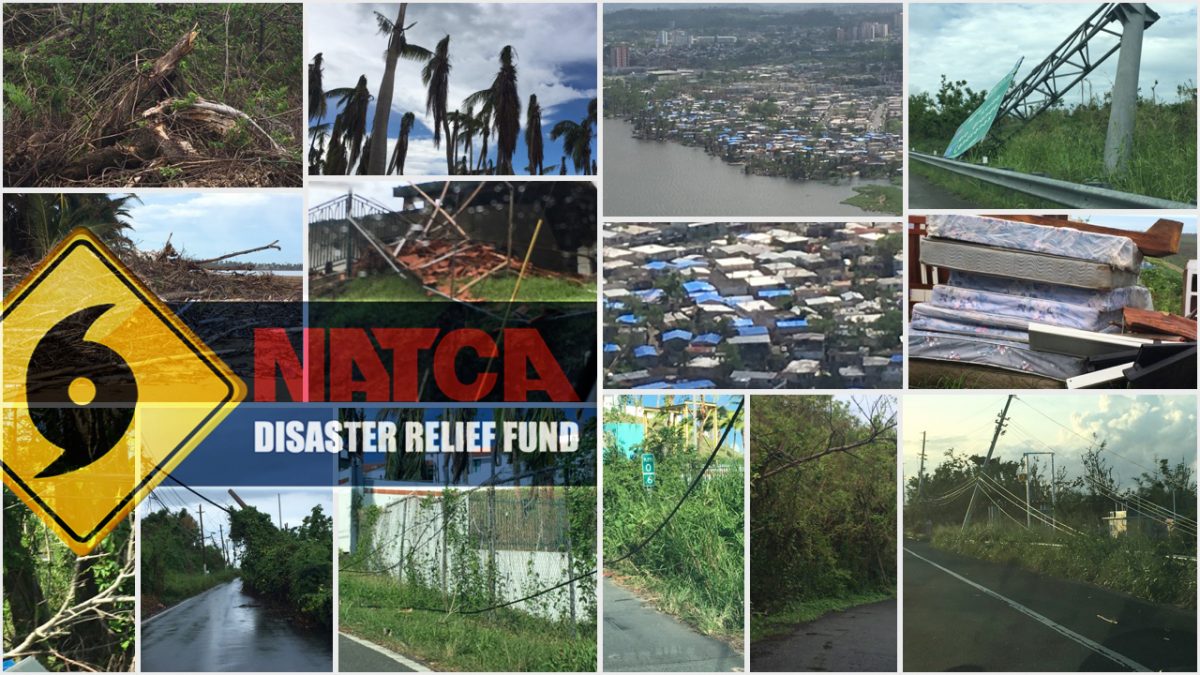
Kristen Laubach’s First-Hand Account of Conditions in San Juan.

Below is Kristen Laubach’s first-hand account of conditions in San Juan.
Kristine Mooso (Boston Center) and I flew to San Juan about five weeks after Hurricane Maria made landfall. We were there as part of the NATCA CISM (Critical Incident Stress Management) team and our purpose was to help our NATCA brothers and sisters return to normal after experiencing the devastating effects of Hurricanes Irma and Maria.
Neither one of us knew what to expect. By the time I flew in, Kristine had made it safely to the hotel. It was dark when I landed and the airport was quiet. Driving to the hotel was a challenge. There was no power to illuminate the streetlights and it was difficult to see debris on the roads. Street signs were twisted, most had been pushed off the road and were unreadable. Power lines laid across the roadways and since there was no power, vehicles drove over them without thinking twice.
The next morning on the drive to San Juan (SJU) tower I could see the real devastation the people of Puerto Rico were living through. Rooftops had been blown off and were now covered in blue tarps to keep the rain out. There were downed power lines, trees ripped out of the ground, and dozens of vehicles waiting in line for gas. All this within 20 miles of San Juan, the largest city on the island. I began to wonder what people on the rest of the island were experiencing. Were they able to get fresh water? Did they have generators? Were supplies making it to the small villages?
You can assist our brothers and sisters accumulate these much needed supplies. NATCA has established the NATCA Disaster Relief Fund to assist members in offsetting costs that occur when a disaster strikes. A one-time donation or recurring paycheck deduction can be made to the NATCA Disaster Relief Fund. If you haven’t contributed yet, please consider making a donation. The NATCA members of Puerto Rico and St. Thomas need your assistance.
NATCA CISM team members are trained to facilitate a peer-based interaction to provide our members the support needed to return to functioning normal. We are paired with an EAP contracted clinician and we visit facilities that have experienced traumatic events. Feel free to reach out to either EAP or NATCA CISM for any needs you may have. Someone is always available for confidential conversation. Our NATCA CISM hotline number is 1-202- 505-CISM or to reach EAP, call 1-800-234- 1327.

